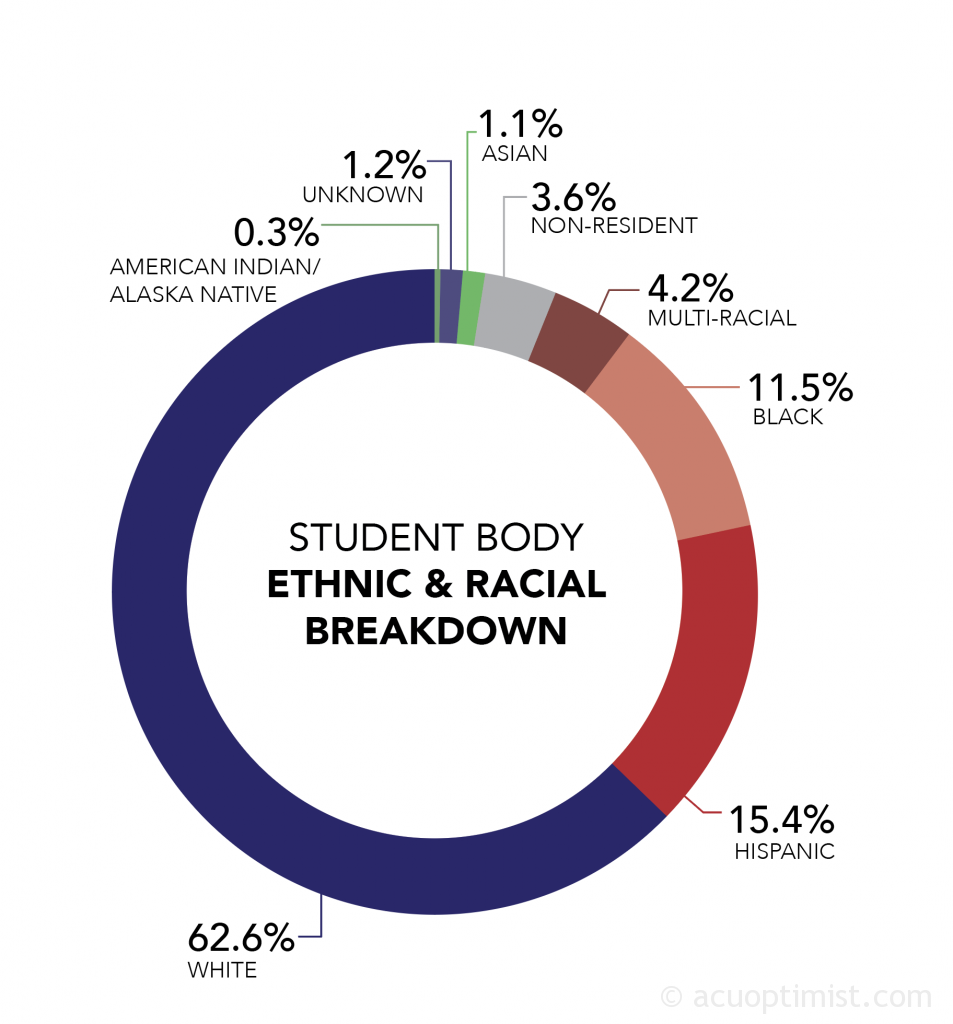While freshman Hispanic enrollment increased in 2016, research conducted by a junior McNair Scholar shows what affects the enrollment, retention and graduation rates for Hispanics in Texas colleges.
Adam Andrade, junior political science and business management major from Fort Worth, participated in summer research for the McNair Scholars Program, a program that helps minority or first generation college students prepare for graduate school.
Andrade used National Center for Education statistics to see what factors affect enrollment for Hispanics in Texas colleges and what measures could be taken to improve the Hispanic enrollment, retention and graduation rates.
Hispanic students accounted for almost fifteen percent of the ACU student body in 2015. This year Hispanic enrollment included 759 students, 15.46 percent of the student body. Hispanic enrollment for the 2016 freshman class reached 18.6 percent. This number mirrors the U.S. population with Hispanics accounting for 16.7 percent of the total population. However, in the nation as a whole, less than half of Hispanics attend college.
“Hispanics are trapped in a vicious cycle that entails many social injustices,” Andrade said in his paper. “A government that is not helping quick enough nor well enough, a lack of opportunity and a culture that is used as a way to bind and jade a population instead of empower a race.”
Andrade said cultural factors influence Hispanic students because of a cultural stigma against higher education. At the same time, a circumstance which encourages Hispanics to enroll includes Hispanic teachers in colleges. When students see Hispanic professors, Hispanics who have earned doctorates and thrived in higher education, they are more likely to enroll at a university.
In his research, Andrade found higher Hispanic teacher to Hispanic student ratios helped enrollment at Texas universities, but that ratio did not help Hispanic retention rates.
“A lot of people who go to school, it’s because they want to have a better life for themselves,” Andrade said. “In a very raw sense, they’re following what their parents did; they left everything that was familiar to them. For my father, he left Mexico to attain a liberal arts degree.”
Because much of what affects Hispanics in college comes from culture and history, Andrade said that data was hard to collect.
“Bless all the professors who don’t have any affiliation with the Hispanic community,” Andrade said. “As a Mexican-American, trying to have those dual identities is hard for us but I can only imagine how much harder it is for someone who’s not from that culture.”

